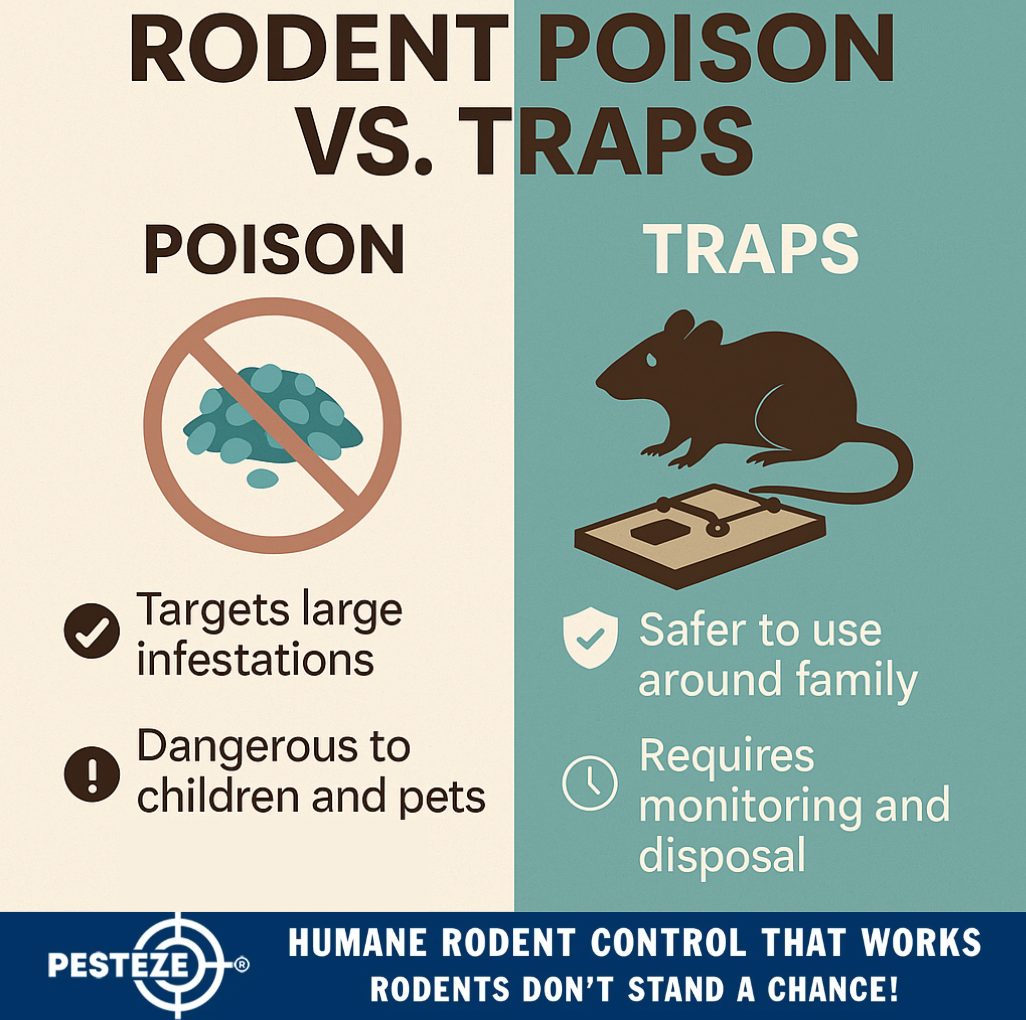RODENT POISON VS. TRAPS: PROS AND CONS

RODENT POISON VS. TRAPS: PROS AND CONS
SUMMARY
Choosing between poison and traps can be confusing. This guide compares the pros and cons of each method so homeowners can make informed, safe, and effective decisions about rodent control.
FEATURES
-
Effectiveness: Which method eliminates rodents faster.
-
Safety Concerns: Risks to kids, pets, and wildlife.
-
Ease of Use: Setup and maintenance differences.
-
Cost Factors: Long-term affordability of each method.
-
Environmental Impact: How poisons vs. traps affect ecosystems.
-
Best Use Cases: Situations where each method works best.
DESCRIPTION
When dealing with rodent infestations, homeowners often debate whether to use poison or traps. Both methods have advantages, but they also come with significant drawbacks. Understanding their pros and cons helps determine which approach is best for your situation.
Rodent poison, or rodenticides, is designed to kill quickly and can target large populations. It requires little effort once placed, making it convenient for widespread infestations. However, poisons come with major safety concerns. Children, pets, and even wildlife can ingest them accidentally, leading to severe illness or death. Additionally, poisoned rodents often die in hidden places, creating foul odors and sanitation problems.
Traps, on the other hand, provide a safer and more controlled solution. Snap traps, electronic traps, and humane live traps allow homeowners to directly capture or eliminate rodents. Traps reduce the risk of secondary poisoning and are generally considered more environmentally friendly. The downside is that traps require placement, monitoring, and regular disposal, which can be time-consuming.
From a cost perspective, both methods can be affordable, but traps tend to be more cost-effective in the long run since they are reusable. Poisons often require repeated purchases and may not solve the problem permanently if entry points are not sealed.
Environmental impact is another factor. Poisons harm not only rodents but also predators, scavengers, and ecosystems when toxins spread through the food chain. Traps have less collateral damage and are more sustainable.
Ultimately, poisons may be more effective for large, sudden infestations where quick reduction is needed, but traps are safer, more humane, and better for long-term prevention. Most experts recommend traps over poisons, combined with proper sanitation and sealing of entry points for lasting control.
- Saharsh Bansal


Comments 0